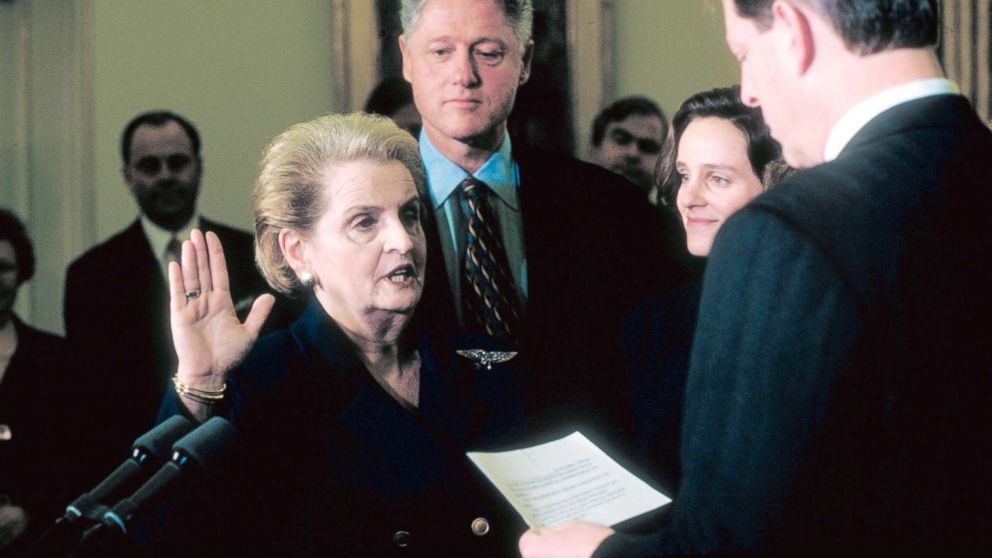Madeleine, who was ‘a trailblazer’ as the highest-ranking woman in US history when she was named to the role of secretary of state in 1996 and in her later years has become a feminist icon died at the age of 84.

Madeleine Albright, who fled the Nazis as a child in her native Czechoslovakia during World War Two then rose to become the first female U.S. secretary of state and, in her later years, a feminist icon, died on Wednesday at the age of 84.
Her family announced her death on Twitter and said she had died of cancer. Leaders, diplomats and academics remembered her as a trailblazer on the world stage.
Albright served as U.S. ambassador to the United Nations from 1993-1997 in U.S. President Bill Clinton’s administration. He then nominated her to become the first female secretary of state and she served in that role from 1997-2001.
She was a tough-talking diplomat in an administration that hesitated to involve itself in the two biggest foreign policy crises of the 1990s – the genocides in Rwanda and Bosnia-Herzegovina.
She pressed for a tougher line against the Serbs in Bosnia after Bosnian Serb military forces laid siege to the capital Sarajevo.
In 1995, Bosnian Serb soldiers overran three Moslem enclaves, Srebrenica, Gorazde and Zepa, and massacred more than 8,000 people.

The United States responded by working with NATO on airstrikes that forced an end to the war but only after it had been going on for three years.
Albright’s experience as a refugee prompted her to push for the United States to use its superpower clout. She wanted a “muscular internationalism,” said James O’Brien, a senior adviser to Albright during the Bosnian war.
Early in the Clinton administration, while she unsuccessfully advocated for a quicker, stronger response in Bosnia, Albright backed a U.N. war crimes tribunal that eventually put the architects of that war.
Kosovo President Vjosa Osmani said on Wednesday she was “deeply shocked by the loss of Kosovo’s great friend,” adding that the intervention “gave us hope, when we did not have it.”
Feminist heroine
Once the Clinton years and the 1990s were over, Albright became an icon to a generation of young women looking for inspiration in their quest for opportunity and respect in the workplace. Albright was fond of saying: “There’s a special place in hell for women who don’t help each other.”
Albright was a marked contrast to her predecessors and male colleagues in uniform suits. She used clothes and jewelry to send tart, political messages. One favorite was a snake brooch, a reference to Iraqi leader Saddam Hussein calling her an “unparalleled serpent.”
She wrote a book about her signature jewelry, one of several bestsellers, explaining that the pins were a diplomatic tool. Balloons or flower pins would indicate she felt optimistic, while a crab or turtle would indicate frustration.
Source: Reuters

